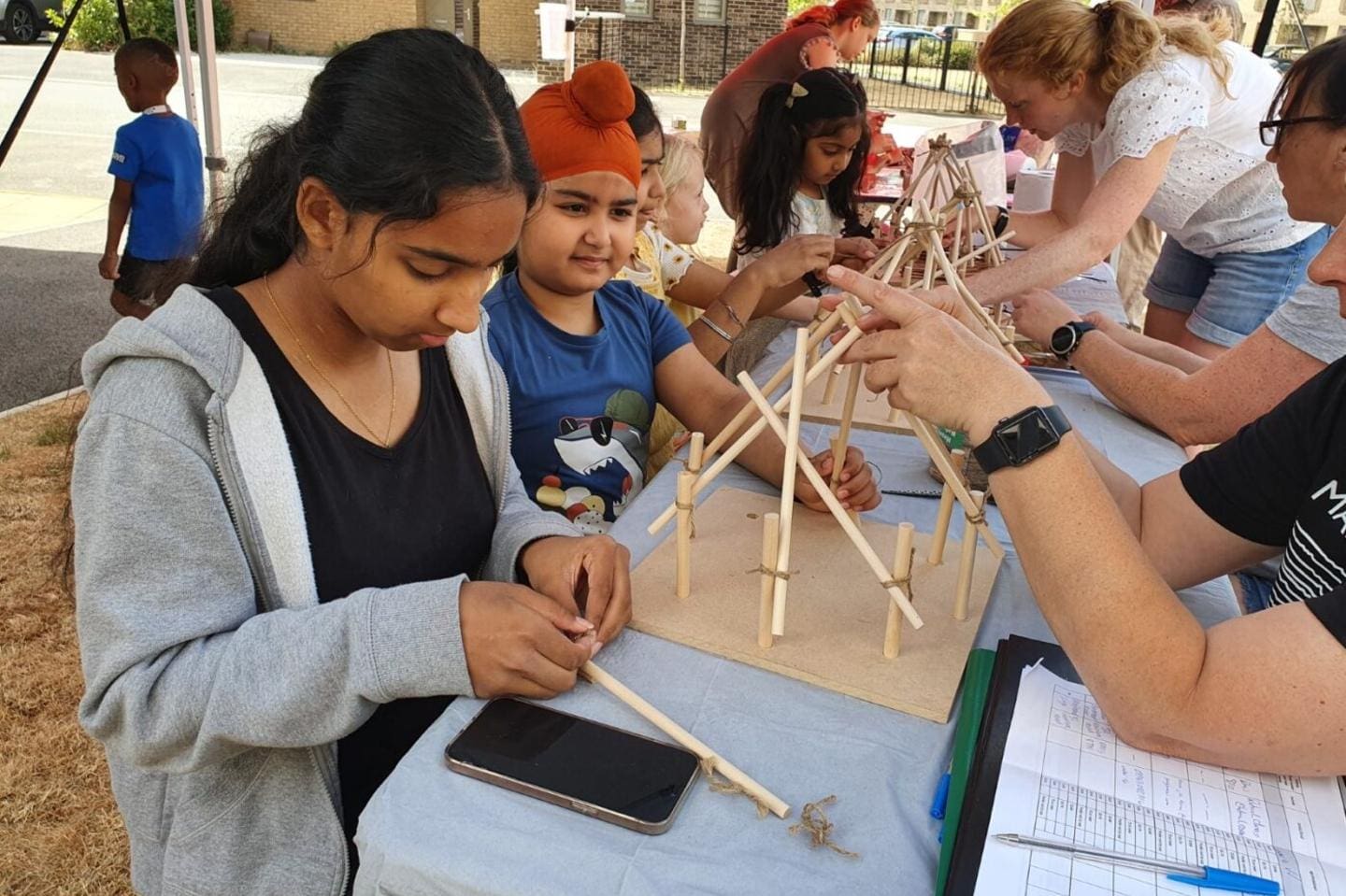MOLA and Impact Trailblaze Together, Pioneering Social Value Reporting in Archaeology
Manchester, [17 January 2024] – Impact, the social impact reporting platform, celebrates a triumphant launch in collaboration with MOLA (Museum of London Archaeology). The partnership has seen significant strides in MOLA’s innovative new business stream,
The Hub is a virtual centre at the forefront of driving community-focused and sustainable initiatives. Notably, The Hub is one of the first UK teams currently combining research and development in Social Value metrics and frameworks within construction and development-based archaeology.
About The Hub: Shaping the future of archaeology for social good
Born of MOLA’s Future Leaders Fellowship, The Hub stands as a testament to the collaborative efforts of clients, heritage consultants, charities, public sector representatives, archaeologists, and local community members. The initiative aims to deliver and evaluate transformative outcomes derived from archaeology, focusing on life and planet-changing impacts.
The Hub’s multifaceted approach includes charitable grants, community investments, public events, and consultancy projects. Notable pilot projects, such as Beam Park and N1 Neighbourhood Consultations, showcase the tangible results of The Hub’s commitment to creating social value.
The mission is to help groups establish how KPIs can mesh with the requirements of a planning condition and explore the heritage potential of a project more widely. They achieve this in several ways, namely by advising on how to fit the archaeological milestones of a project whilst keeping Social Value at the heart of work. Not only this but they are supporting the growing need to evidence value through metrics in line with various frameworks: TOMS, HACT, WELLBYS etc.
Coordinated by Dr. Kate Faccia and Dr. Sadie Watson, The Hub has successfully navigated its initial phase around MOLA’s London office, with plans for expansion to the organisation’s other offices.
Both women are an asset to the project. Dr Faccia is an Expert team member on the Publication User Needs 2 project with the Council for British Archaeology, and she is dedicated to improving the dissemination of archaeological information and actively participates in the Archaeology Audience Network.
Dr Watson, who is leading the public benefit aspects of the Chartered Institute for Archaeologists and Historic England’s 21st Century Challenges for Archaeology project, previously contributed to the UK Government’s Department of Culture, Media and Sport’s Cultural Heritage Capital project, focusing on enhancing the measurement of value in culture and heritage.
- Key impact measurement and management trends to watch for in 2024
- MOLA and Impact Trailblaze Together, Pioneering Social Value Reporting in Archaeology
- Does 2024 promise better impact accounting?
- Gaining buy-in from your decision makers to propel your impact efforts
Impact: Elevating Social Value Measurement
Key to The Hub’s success is the integration of Impact’s social value reporting platform. The framework-independent platform allows MOLA to track specific variables, providing evidence of the unique value of archaeology and heritage and evidence of changing the way archaeology provides value. The platform evaluates impacts on individual and communal health and well-being, MOLA’s economic contribution to the local community, alignment with widely recognised social value metrics, and the development of skills and employability.
“Working with Impact has been transformative for MOLA’s Hub initiative. The integration of Impact’s social value reporting platform has empowered us to meticulously track and showcase the unique impacts of archaeology. It has not only elevated our ability to measure the true value of our work but has also provided a dynamic tool to communicate and amplify the positive changes we’re driving in communities. It’s not just about digging into the past; it’s about using technology to build a socially and environmentally conscious future, and Impact has been an invaluable partner in making this vision a reality,” said Dr. Kate Faccia, Coordinator of The Hub at MOLA.
Results from these evaluations will be shared with MOLA’s community and research partners, as well as clients, to shape the future design of community, cultural, and planning activities for social and environmental benefit.
Social value reporting leadership in action
“Witnessing the success of The Hub’s initial phase reaffirms our belief in the transformative power of technology and archaeology coming together,” said Matt Haworth, Co-Founder of Impact Reporting. Our platform’s effectiveness in measuring and amplifying social impact is a testament to the positive change we can drive. We take pride in being partners with MOLA, actively contributing to their mission of turning archaeology into a force for social good.”
Changing the model of developer-led archaeology.
As the collaboration progresses, both Impact and MOLA look forward to furthering their joint commitment to social value, sustainability, and community impact. The partnership’s achievements in the initial launch phase lay the foundation for continued success, with ongoing projects and initiatives set to make lasting contributions to communities and the planet.
About MOLA:
MOLA is an experienced and innovative archaeological and built heritage practice, Independent Research Organisation, and charity. With more than 350 staff working across England, MOLA has been providing independent, professional heritage advice and services for over 50 years. Find out more at mola.org.uk, on Twitter, Facebook and LinkedIn.
About Impact Reporting:
Impact Reporting simplifies social value measurement. No more scattered spreadsheets or manual data entry—our framework-independent software simplifies the process, making it easy and time-efficient for organisations to quantify their positive impact on society.
What sets us apart is our commitment to making social value reporting not just manageable but relevant, actionable and sustainable. We empower users to shine with compelling social impact data that drive boardroom-level decisions and unlock further investment.
More than just a tool, Impact Reporting is a catalyst for positive change, helping forward-thinking businesses of all sizes align their initiatives to environmental, social and governance goals – no matter the framework.
